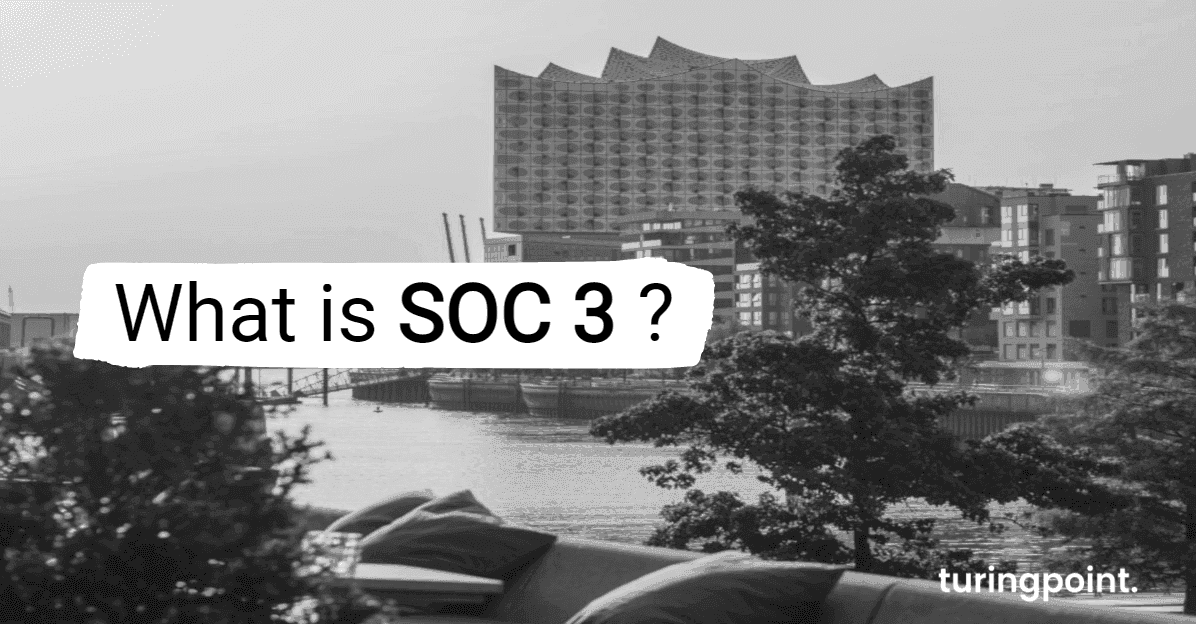What is SOC 3 ?
This is a simplified report type than SOC 2, focusing on information availability and integrity, confidentiality, and compliance.

Table of content
What is SOC 3 (System and Organization Controls 3)?
SOC3 (Service Organization Controls 3) is a report type created by the AICPA (American Institute of Certified Public Accountants) to assess an organization's security and control measures. It is a simplified report type than SOC 2, focusing on information availability and integrity, confidentiality, and compliance. SOC3 reports serve as evidence for organizations that want to prove to their users or customers that they have adequate security measures in place. A SOC 3 (System and Organizational Controls 3) report contains information about a service organization's internal controls related to security, availability, processing, integrity, confidentiality and privacy. These five areas are the focus of the American Institute of Certified Public Accountants' (AICPA) Trust Services Criteria (TSC).
SOC 3 reports are public and part of the voluntary SOC compliance reports, which also include SOC 2 and SOC 1 financial reporting audits.
Users or potential customers of an organization most often request a SOC-3 audit. Organizations that provide software as a service, cloud computing or data center services - or those that handle sensitive customer data or personal information - are more likely to have a compliance audit. They are conducted by an auditor or external auditor.
SOC-3 audits provide a comprehensive view of an organization's controls and security risks and are aimed at a general audience. For this reason, organizations hire CPA firms to conduct the audits and produce reports. They often publish the results on their websites and disseminate them through marketing campaigns to show their customers that they take data security seriously.
Technology companies most often require these reports. But many other industries must comply with similar regulations; companies in industries such as finance, healthcare, e-commerce, and government also use SOC 3 reports.
Why is SOC 3 compliance important?
SOC 3 compliance is important for the following reasons:
Brand Reputation. SOC 3 reports provide customers with assurance that a company's controls and processes for protecting sensitive customer data meet industry standards. SOC 3 proves that a company is investing in security and is transparent about its security processes. Although SOC 3 reports are voluntary, many companies use them. Freely distributed SOC 3 reports are an effective way to engage customers, educate stakeholders, and strengthen the brand.
Risk Management. SOC 3 standards help organizations evaluate their own risk management processes and optimize their network management controls. Compared to competitor SOC 3 reports, this allows organizations to understand how vulnerable they are to potential security breaches and which risk areas they may need to remediate. SOC 3 audits have the added benefit of reducing the costs associated with security breaches.
Mandatory Compliance. SOC 3 is similar to other regulatory requirements, such as the EU's General Data Protection Regulation (GDPR) and the Health Insurance Portability and Accountability Act (HIPAA). Compliance with SOC 3 standards is another way to demonstrate compliance with industry standards.
Marketing. Because they are made public, SOC 3 reports help companies attract potential customers. The reports show potential customers that a company has adequate, secure controls in place to manage and protect its data, and that it is invested in complying with industry standards.
SOC 3 vs. SOC 2
SOC 2 Predecessor
Production of limited purpose reports intended only for service organization management, stakeholders, and the client requesting the audit. Type I or Type II Reports.
These can be either Type I or Type II SOC reports. Type II reports typically assess an organization over the course of a year, and the assessments are more rigorous than Type I reports.
They may contain confidential information about the organization's customer, security, and cybersecurity. Contains confidential information about the company's security processes. The report is intended only for the company and the client who requested it.
Contains the auditor's report and detailed information about the list of controls the auditor used in his testing. A detailed look at a company's controls. Includes the auditor's report and a list of controls used in testing.
The SOC-3 Value-Added
These are general use reports intended for public use and dissemination. They provide a comprehensive overview of an organization's controls.
Reports are Type II by default; there is no Type I option.
They provide a general overview of the effectiveness of an organization's controls and do not contain confidential or detailed information about those processes.
The document does not include the auditor's report or a list of controls used by the auditor.
Conclusion
SOC 3 is a simplified report type compared to SOC 2 that focuses on information availability and integrity, confidentiality, and compliance. SOC 3 reports are public and part of the voluntary SOC compliance reports that also include SOC 2 and SOC 1 financial reporting audits. SOC 3 reports consist of Type II reports and do not contain confidential or detailed information about an organization's security processes. They provide a general overview of an organization's controls and can assist with compliance with industry standards. They can also be used as a means to attract customers, inform stakeholders and reinforce the brand.
Contact
Curious? Convinced? Interested?
Schedule a no-obligation initial consultation with one of our sales representatives. Use the following link to select an appointment:
